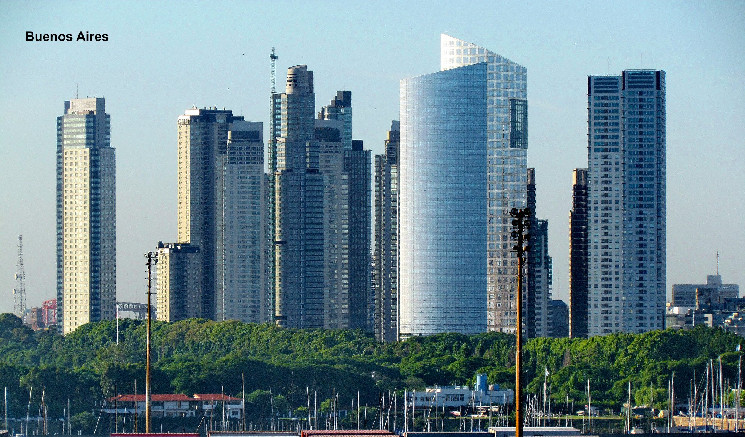Argentina’s Amazon, MercadoLibre, has quietly announced in a SEC filing they bought nearly $8 million worth of bitcoin as part of their treasury reserves strategy.
“As part of our treasury strategy this quarter we purchased $7.8 million in bitcoin, a digital asset that we are disclosing within our indefinite-lived intangible assets,” they say.
MercadoLibre has nearly 70 million users, processing close to $15 billion in yearly volumes. Making this one of the biggest e-commerce store in the world.
It is also the first know Latin American company to hold a substantial amount of bitcoin. Making it notable because Argentina has very high inflation at 42%.
This is a relatively rich country with a GDP of $450 billion for its 45 million residents, but it is far smaller than its neighbor, Brazil, with a population of 211 million and a GDP of $1.8 trillion.
Brazil arguably leads, but it’s not clear whether that is being contested as Ripio, Argentina’s biggest crypto exchange, recently announced they bought Brazil’s second biggest exchange, Bitcoin Trade.
Ripio itself has just recently reached one million users, quite a milestone for this 2013 company that is now seemingly rising to be a regional crypto powerhouse.
In the entire region, including Colombia and Venezuela, bitcoin has seen increased adoption since 2018.
It’s not clear now whether that is heading towards mainstream levels, with little heard from the region except occasional news like Brazil recently launching a bitcoin ETF.
They have their own crypto media however, so interest is substantial, and more generally what we may be beginning to see is a wave of adoption from developing countries.
From Nigeria, to Turkey, to India, to Brazil and Argentina, the people are discovering this new invention and many seem to like it.
That’s bringing local ‘clashes’ between the old and the young as the debates we have had here and are having, are echoed locally between the bitcoin skeptics or even haters, and bitcoin supporters.
In the process, we’re getting to learn quite a bit about these countries. India for example appears to have an independent judiciary. That can only be good news for any foreign business that wants to go there as property rights appear to be protected by the rule of law. However it is not clear how much power the executive has in practice, but India fundamentally appears to have a functioning English model where the rule of law is concerned in as far as other branches might be a bit dicy but the judiciary is independent.
Turkey has a Presidential system and the president maybe has a bit too much power with it to be seen whether it has an independent judiciary, but one thing notable here is that unlike other countries including India which had their central bank initially ban crypto related transactions, Turkey’s central bank banned only payments when used as currency.
That presumably tells us that Turkey is less free than Europe institutionally speaking, but more free than most other countries. It’s half European basically, with that apparently not quite being a meme.
The least free country is China. Here, it’s not clear whether there is any judiciary meaningfully speaking, it is not clear whether there is any media – again meaningfully speaking – and it is not clear whether there is any civil society at all.
The country instead appears to be an actual dictatorship, with no fundamental property rights and no rule of law as there appears to be no checks and balances at all.
At the other spectrum may well be Latin America. The authorities there appear to be liberal in the classic sense of the word with no news of any unreasonable restriction reaching us.
That may suggest this is potentially a stable fast growth region, and considering the significant monetary mismanagement in many Latin American countries, cryptos may take off here.
 trustnodes.com
trustnodes.com
